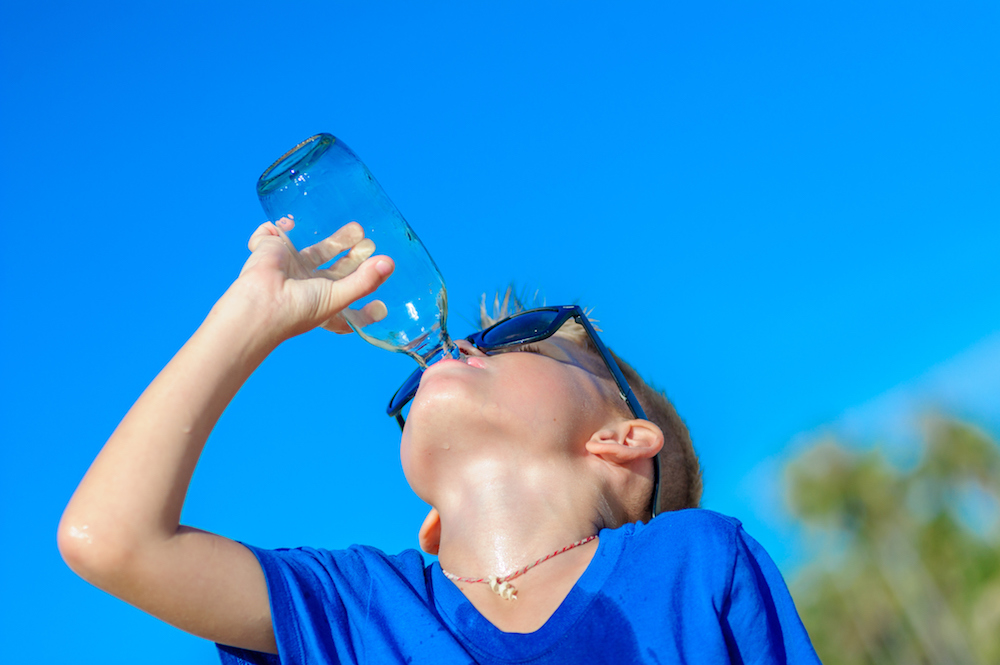Topics

Image Source
In Houston, we’ve been spoiled with a beautiful, mild spring season, but temperatures are surely rising and humidity is already creeping around the corner! It’s going to be summer before we know it, so I wanted to share some heat-related safety facts and tips for National Heat Awareness Day to keep your family safe under the sweltering sun over the next few months.
It’s important to remember children are at high risk for heat-related illnesses, as their bodies heat up 3-5 times faster than those of full-grown adults. When the weather is extremely hot and humid, the body’s ability to cool itself down is compromised, and both adults and children are at risk if the heat index rises above 90 degrees Fahrenheit.
Exposure to high temperatures and humidity can cause heat exhaustion, which leads to dangerous heatstroke if not treated promptly.
Your child may not tell you if they’re feeling bad, so it’s critical to recognize the signs and symptoms of these heat-related illnesses in order to take proper action and prevent further injury.
Heat exhaustion:
- Increased thirst
- Weakness, dizziness
- Fainting
- Muscle cramps
- Nausea and vomiting
- Irritability
- Increased sweating
- Cool, clammy skin
Heatstroke:
- Severe headache
- Confusion, agitation and slurred speech
- Rapid breathing, fast heart rate
- Loss of consciousness
- Seizures
- Decreased sweating (or no sweating)
- Flushed, dry skin
- Elevated body temperature (usually 104 degrees Fahrenheit or higher)
If you find a child (or adult) who could be suffering from heat exhaustion or heatstroke, immediately stop all activity and move them away from the sun’s glare and under shade, preferably in an air-conditioned space. If possible, try to replace water loss with cool fluids. If heatstroke is detected, call 9-1-1. If they’re showing little to no signs of improvement, quickly seek medical attention at an urgent care or emergency facility.
We can all easily prevent heat-related injuries to ourselves by drinking plenty of water and decaffeinated fluids before, during and after being outside in the heat. If you have children, provide them with sunscreen and breathable, light-colored clothing to reflect heat and sunlight. If possible, schedule outdoor activities during early mornings or late afternoons when it’s cooler. When outside, advise your children to decrease sun exposure and to come inside immediately if they feel overheated.
Lastly, you should never leave a child alone in a car in this weather. On average, a child dies from heatstroke in a parked vehicle every 10 days. Cars can heat up 19 degrees Fahrenheit in just 10 minutes, and can exceed 100 degrees Fahrenheit in 30 minutes. These fatalities usually aren’t intentional, as the parent or caretaker simply forgets the child was left in the car. Consider these tips:
- Never leave a child in a parked vehicle alone, not even with the windows rolled down. Always take your children inside with you, even if it’s a quick errand.
- Create a reminder that your child is in the backseat, such as putting your purse or workbag in the backseat. Or, use your phone to remind you to check for your child when you park the car.
- If you see a child alone in a parked car, take action and call 9-1-1.
I hope these tips keep you and your children safe this summer.